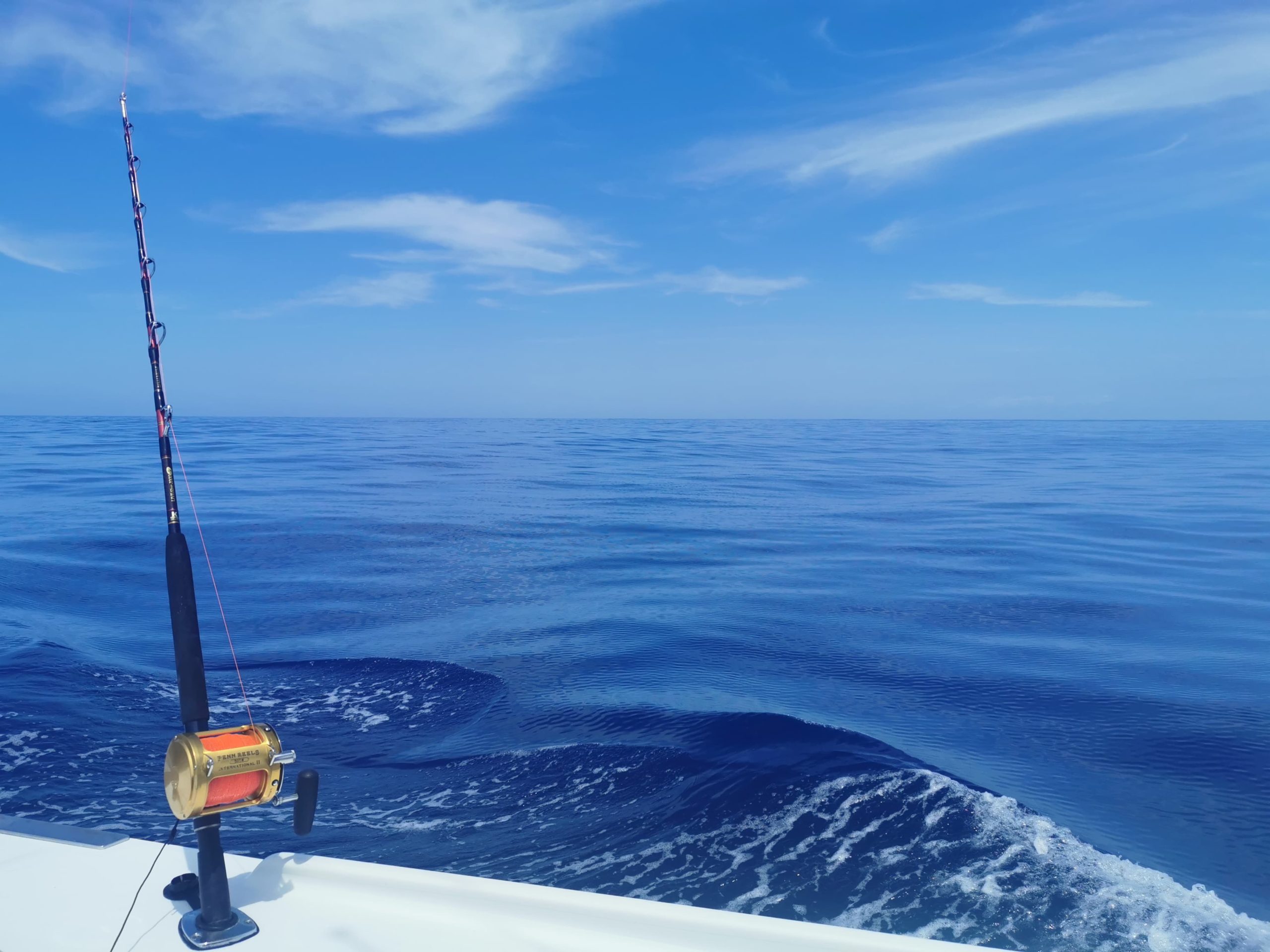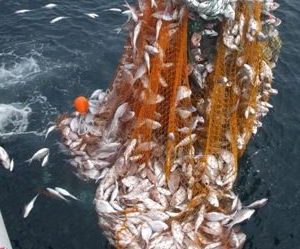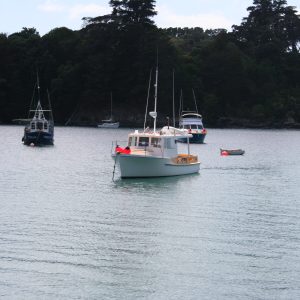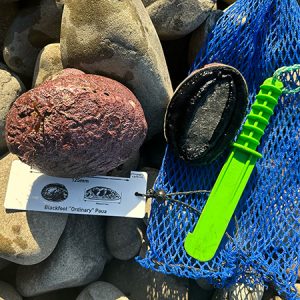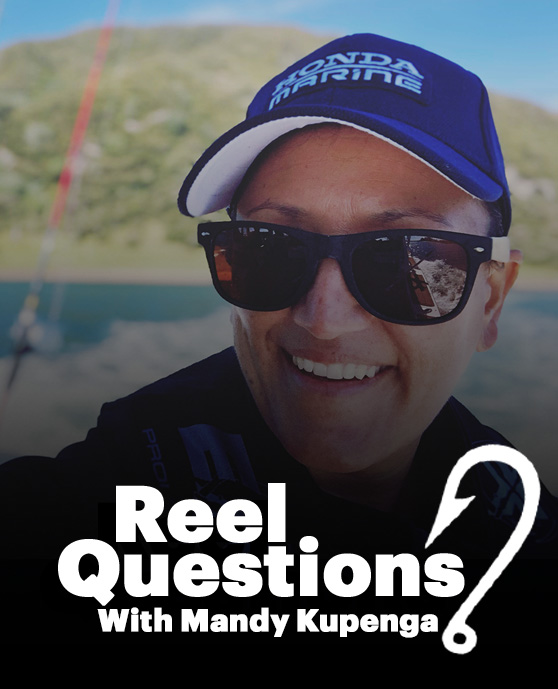
Reel Questions is a commentary series providing an insight to the opinions and experiences of individuals who have ties with our fish life and marine environment whether it be their livelihood, playground, creative influence, culture or simply a part of their lives. They all have a varied relationship with our coast and fish. We ask them some key questions and share their answers with you.
Mandy is a TV presenter, runs her own media management and video production company (Moments Media) and is passionate about protecting our oceans.
1. Do you recall the first time you ever went fishing?
As a kid, I’d go fishing with my brothers and sisters in the Waikanae Creek in Gisborne. Dad worked on the Railways which backed onto that creek. Watties used to pump food waste into that creek. It made this amazing burley trail. I have a vivid memory of seeing all sorts coming out of that pipe including pieces of corn. Back then I had no idea about what that meant environmentally. We’d park ourselves on the railway bridge and catch sprats with our handlines. Dad had the only fishing rod. It was awesome when you had a go with that!
2. If you were able to do it again today in the same place, would the experience be any differently?
I actually went back to that bridge last year when I was in Gisborne hosting the ladies fishing competition. The stream has been rehabilitated as part of a Gisborne District Council restoration project. The water was clear and clean. It looked really beautiful. I was blown away. People at the fishing club were telling me that on some days you actually get kingfish up in that stream, splashing about chasing bait fish. It was heartwarming.
3. What is your favourite way of preparing a fish for the table?
I find it hard to go past fresh fish. I’ve become a fish snob over time because I’ve learned how to look after the fish and the difference it makes to the taste. My two favs are simple pan-fried snapper and sashimi; tuna, kingfish, trevally or John Dory. If you’ve never tried John Dory sashimi, I recommend it – it’s stunning. My favourite dipping sauce at the moment is mayo, wasabi, lemon, salt and pepper. Mmmm! That is such an amazing sauce!
4. What do you think are the biggest issues facing our fisheries in the future?
People. We’re the cause of all the issues; over-fishing, pollution and climate change. But collectively we’re also the solution. It all comes back to us so the question is; what are we going to do to protect our oceans the future of fishing? Can we change our ways? Our lifestyles of convenience? Can we find and embrace replacements for plastic and petrol and bottom trawling so that we can continue to enjoy our ocean resources for generations to come? How quickly can we change our behaviour to look after the environment as well as the bottom line? Collectively we hold the solution.
5. What does the Quota Management System mean to you?
The QMS is an outdated mechanism for managing our fisheries. It came in at a time where controls were necessary, but thirty years on, it’s not achieving the best outcomes for New Zealanders as a whole. Too many fisheries have collapsed or been overfished such as Cray-2 and blue cod in the South Island – that’s not effective management.. I believe we can do better with a change in focus and accountability. The vast majority of profits go to a few big companies. More ownership and profits need to be with the people, stimulating regional economies. There are options working internationally that we can integrate into new solutions. We have to grow our voice and support initiatives that will make a difference to the future of our fisheries.
6 If you were the Minister of Fisheries, what would you do first and what would you like to be remembered for?
The first thing I’d do is get a firm grip on the issues we’re facing and overhaul the entire system to deal with the big issues effectively and with longevity. It would include changing MPI’s strategic objectives. Too much weight is placed on commercial outcomes and not enough on environmental outcomes as an equally important measure of success. Too much lip service is paid to sustainability and not enough substance relative to commercial outcomes. We have to do a much better job of balancing both. I’d want the people to be able to celebrate a successful new system that produced a vibrant and viable fishery. Happy people out on the water catching beautiful healthy fish.
7. What impact do you think Covid-19 will have on the way we manage our fisheries?
Being up locked in our bubbles for the last month has given us a chance to pause and reflect on what’s really important. We can’t take anything for granted. It’ll be interesting to see if some new thinking and perspectives come out of this time and we can go forward with some new resolves to really look have.
8 Will the QMS cope with the post Covid-19 economy or is it time to look at alternatives?
I believe it’s time to evolve our fisheries management system because it’s not serving the people of New Zealand. Over time it’s morphed to serve corporates more than everyday Kiwis and the health of our environment. Let’s have a system that creates more equity, stimulates regional economies, creates more jobs and has genuine stewardship of the health of our oceans and ecosystems. Our fisheries should benefit heaps of people, not just the few who own quota.
9. Have you done anything fishing related during the lockdown?
I’ve watched some fishing videos on the “interweb” and cleaned up some of my reels. My wife re-hung my rods up in the garage. But organising gear and watching videos is not quite the same. I cannot wait for a feed of fresh fish. The thing I miss the most is being out on the water: that calm, quiet, beautiful place where you regenerate your soul. Just being in nature. Water especially is very soothing. It washes everything away and is quite refreshing. Catching a fish is just a bonus.
10. How would you describe fishing to someone who had never been before?
It’s an emotional rollercoaster. It’s a great way to learn patience. It can be very calming but then it can be absolutely mental when you’re hooking in to fish! You get all sorts of emotions, some relaxing, some intense and exciting. That’s the thing people love about it.
